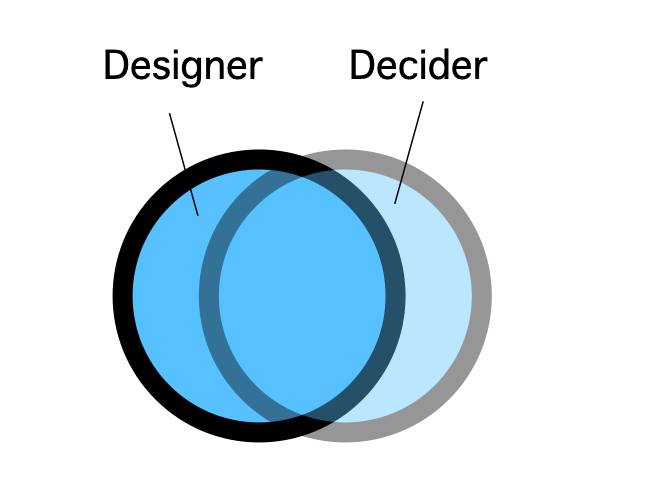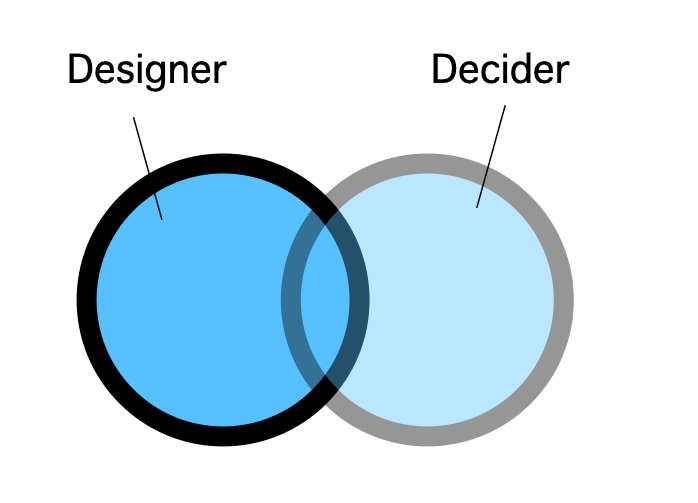Are you a designer or a decider?
We have flawed expectations for how much power we will be given
When you play a game like Minecraft, Stardew Valley, or even Solitaire, you are in complete control. For any idea you come up with you do not have to negotiate with anyone else. Except for the rules of the game, you have complete power and freedom, which is why video games are fun. When things go well you get all the credit and if things go poorly at least all of the mistakes were yours too. Essentially you get to design and decide almost everything.
How does this compare to the average professional designer? If your job title has the word design in it, what do you actually decide? What can you choose to do without having to convince someone else first? Probably not many things, if any at all. While you are free to conceive ideas, you’re heavily constrained in the decisions you are empowered to decide. You probably frequently feel like a victim, perhaps of politics, bureaucracy, ignorance or short sighted capitalism. While a designer can conceive anything they want in Photoshop, Figma or on a sketchpad, when it comes to putting that design into the world it’s the powerful who decide (unless you control the resources yourself, like many entrepreneurs do).
Somehow we have forgotten that we have internalized defining designing as separate from the act of deciding. What we call designing is mostly advising. We make things as suggestions for other powerful people, clients, executives, project teams, and they make the decisions. What we do get to decide are often the details. We work hard to offer good advice but that advice is often ignored. This means the true designers of a product are not the people with the job title designer, but the leaders who decide the strategy, make plans, choose staff and prioritize budgets, people we often fear or avoid, to our own disempowerment. We consider all these things as not-design, and in some ways beneath us, even though we depend on them in order to do the design work we want to do. As Maxim Leyzerovich cynically described: “being a designer is mostly just making people feel good about decisions that have already been made.” But what would it mean to be a designer who is also the decider?
This situation of design as separate from decisions is not what you expected when you started your career. You likely imagined teams of people, happy minions perhaps, joyfulling working to bring your ideas to life. You did not expect to spend your time explaining what UX is, being asked to make bad products pretty (which can be impossible to do), or to watch people with no design knowledge define entire products, strategies and platforms while ignoring your sensible suggestions. How could the world be this way? It’s a reasonable question to ask. A better question is: given the history of the design experience in workplaces, why did we expect it to be better than it is? These problems are not new. The question is: what are we willing to change?




That last paragraph got me, especially the bit about watching people with no experience at all in design make big decisions. Heart wrenching stuff but I do think you’re right to point out that we ‘expect’ design talent to lead to control and success. It obviously doesn’t. Alas it is often decisive people who get to make design decisions and you just have to hope they are open to taking advice.